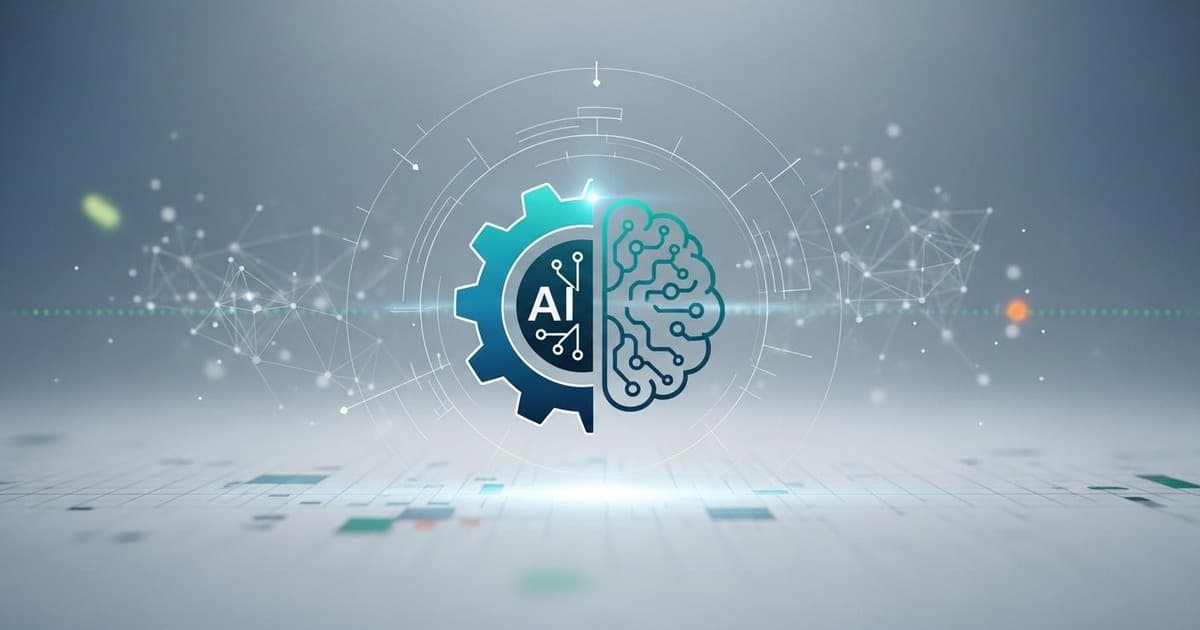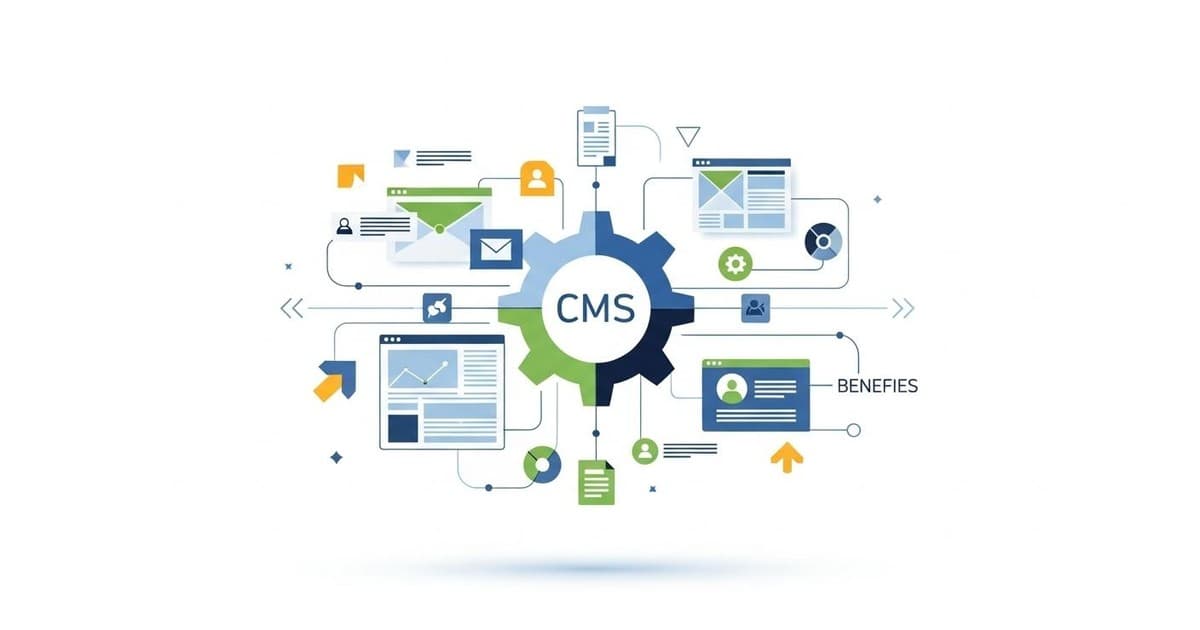
Why an AI CMS is Necessary in 2025
An AI CMS is necessary in 2025 because traditional content management systems can no longer handle the demands of modern digital marketing - from real-time personalization to content creation at scale. The convergence of user expectations, competitive pressures, and technological maturity makes ai powered cms solutions not just advantageous, but essential for business survival.
We're at a content tipping point. Marketing teams are drowning in the "content treadmill" - constantly creating, updating, and personalizing content across multiple channels while struggling to measure what actually works. The average enterprise manages over 10,000 pieces of content across dozens of touchpoints, yet 70% of it goes unused or underperforms because traditional systems lack the intelligence to optimize automatically.
The stakes couldn't be higher. Companies using AI-powered content management are seeing 50-70% efficiency gains in their marketing operations, while those stuck with legacy systems are falling behind in customer engagement and conversion rates. This isn't about keeping up with trends - it's about fundamental business competitiveness in an AI-first world.
What to Look for in an AI CMS Solution

Before diving into why ai cms 2025 adoption is critical, it's important to understand what separates true AI-powered content management from traditional systems with basic automation features.
1. Intelligent Content Creation Capabilities
Look for systems that can generate, edit, and optimize content autonomously rather than just storing it. The best solutions create first drafts, suggest improvements, and automatically generate SEO metadata without manual intervention.
2. Real-Time Personalization Engine
Your AI CMS should deliver dynamic, individualized experiences based on user behavior, not just basic demographic segmentation. This means content that adapts instantly to each visitor's preferences and intent.
3. Predictive Analytics and Content Intelligence
Advanced AI systems don't just report on past performance - they predict what content will work best for specific audiences and automatically suggest content gaps to fill based on business goals.
4. Seamless Integration and Scalability
The solution should integrate with your existing marketing stack while scaling effortlessly as your content needs grow. Look for headless architecture that supports omnichannel distribution.
5. Brand Voice Consistency
AI-generated content must maintain your unique brand voice and tone across all touchpoints, with built-in governance to ensure quality and compliance standards.
The Content Crisis: Why Traditional CMS Falls Short

Traditional content management systems were built for a simpler web - one where content was static, audiences were broad, and personalization meant showing different banner ads. Today's digital landscape demands something entirely different.
The manual toil is crushing marketing teams. Content creators spend 60% of their time on administrative tasks - tagging, categorizing, formatting, and manually updating content across channels. This leaves little time for strategic thinking or creative work that actually drives results.
Static personalization rules can't keep up with modern user expectations. Customers now expect Netflix-level personalization from every brand interaction. Traditional CMS platforms rely on rigid, rule-based systems that can't adapt to the nuanced, real-time preferences of individual users.
The scalability wall hits hard when companies try to expand. Creating content variations for different regions, channels, and audience segments becomes exponentially complex. What works for 10 pieces of content becomes unmanageable at 1,000, and impossible at 10,000.
Analytics exist in silos, making it nearly impossible to understand what content actually drives business outcomes. Teams have data but lack the intelligence to turn insights into automated optimization strategies.
Understanding AI CMS: Beyond Basic Automation

So what is an ai cms exactly? It's not just a traditional content management system with a few automated features bolted on. A true AI CMS integrates artificial intelligence into its core architecture to understand, create, and optimize content autonomously.
The key differentiator lies in content intelligence. While traditional systems store and display content, AI-powered platforms understand context, intent, and performance patterns. They can analyze a piece of content and automatically determine the best headlines, optimal publishing times, and most effective distribution channels.
Think of it as the difference between a filing cabinet and a strategic content partner. Traditional CMS platforms are sophisticated filing cabinets - they organize and retrieve content efficiently. AI CMS solutions act as strategic partners that actively contribute to content strategy, creation, and optimization.
The three foundational pillars of effective AI CMS are creation (generating and augmenting content), personalization (delivering individualized experiences), and operation (automating governance and optimization). Each pillar works together to create a system that doesn't just manage content - it makes content work harder for your business.
Modern AI CMS platforms like Decipher are designed specifically for this new paradigm, offering integrated intelligence that transforms how scaling companies handle content operations.
The 2025 Imperative: Market Forces Driving AI CMS Adoption

Several converging forces make 2025 the critical year for AI CMS adoption. Understanding these drivers helps explain why this isn't just another technology trend, but a fundamental shift in how successful companies will operate.
Customer Expectations Have Reached a Breaking Point
Today's consumers expect instant, relevant, personalized experiences across every touchpoint. Research shows that 80% of customers will abandon a brand after just three poor content experiences. The bar for "good enough" content has risen dramatically, and manual processes simply can't meet these expectations at scale.
Technological Maturity Enables Practical Implementation
Generative AI and large language models have reached a level of sophistication, accessibility, and cost-effectiveness that makes widespread integration practical for businesses of all sizes. What required massive technical teams and budgets just two years ago is now available as plug-and-play solutions.
Economic Pressure Demands Greater Efficiency
Marketing budgets are under scrutiny, with teams expected to deliver better results with fewer resources. Companies using AI-assisted content management report 50-70% efficiency gains in their marketing operations - the kind of improvement that's impossible to ignore in competitive markets.
Competitive Advantage Windows Are Narrowing
Early adopters of AI CMS technology are already seeing significant advantages in content performance and operational efficiency. As these tools become more mainstream, the competitive advantage will shift from "having AI" to "having better AI integration." Companies that wait risk falling permanently behind.
The convergence of these forces creates a perfect storm where AI CMS adoption moves from "nice to have" to "essential for survival." Organizations that recognize this shift and act accordingly will thrive, while those that hesitate will find themselves struggling to catch up in an increasingly AI-driven marketplace.
For startups and SMEs, this represents an unprecedented opportunity to compete with larger organizations by leveraging AI to punch above their weight class. Enterprise clients, meanwhile, can use AI CMS to finally achieve the scale and personalization that their size demands. Solutions like AI-assisted CMS platforms are already demonstrating these capabilities across various industries.
Making the Strategic Decision for Your Organization

The question isn't whether to adopt an AI CMS, but how to choose the right solution and implement it effectively. Many organizations make critical mistakes in their evaluation process that lead to disappointing results or failed implementations.
The biggest mistake is treating AI CMS selection like traditional software procurement - focusing primarily on features and price rather than strategic fit and implementation support. AI-powered systems require a different approach to evaluation, one that considers your team's readiness for AI-assisted workflows and your organization's content maturity level.
Key evaluation criteria should include:
- Integration complexity: How easily does the solution work with your existing marketing stack and workflows?
- Learning curve: What training and change management will your team need to maximize the platform's potential?
- Scalability path: How will the solution grow with your organization's evolving content needs?
- Measurable ROI: What specific efficiency gains and performance improvements can you expect, and how quickly?
The most successful implementations start with pilot projects that demonstrate clear value before scaling across the organization. Companies that try to transform everything at once often struggle with adoption and change management challenges.
Looking ahead, organizations that embrace AI CMS technology now will be positioned to take advantage of even more advanced capabilities as the technology continues to evolve. Those that wait will find themselves not just behind in technology, but behind in the organizational learning and cultural adaptation that makes AI tools truly effective.
The future belongs to companies that can create, personalize, and optimize content at machine speed while maintaining human creativity and strategic oversight. An AI CMS isn't just a technology upgrade - it's the foundation for competing in an AI-first business environment.


